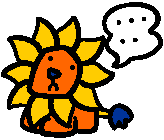
-------------------------------------------------------------------
#95 普段の生活の中で、動物を助けるためには、何ができるのでしょうか?
-------------------------------------------------------------------
日常の生活の中で私たちがまず第一にやるべきことは、動物の虐待や搾
取につながる行為をなくしたり、少なくしたりすることです。
動物を助ける意味においても、エコロジーのためにも、さらにはあなた
自身の健康のためにも最も重要なことは、おそらくベジタリアンになる
ということでしょう。「食べるものを見ればその人が分かる」と言われま
す。もっと正確に言えば、「することを見ればその人が分かる」というこ
とになります。食べるためにその人がやることは、その人が哀れみ深い人
かどうかということと根本的につながっています。私たちが肉を食べつづ
ける限り、私たちはささいな理由のために、無数の動物の屠殺や環境を破
壊する行為の共犯者であり続ける事になります。
どうして「ささいな理由」なのでしょうか?
「マクドナルド欠乏症」で死んだ人間なんていません。一方では、私たち
の食卓をかざるために、無数の牛が命を奪われています。
もっと積極的な理由としては、味覚や食べることの喜びは動物性食品を
排除したことによって、より高められたというベジタリアンからの報告が
あります。実際、ベジタリアンの食事は決して貧しいものではありません。
ベジタリアンの人は肉を食べる人より多くの種類の食品を食べています。
料理に関してずっと秘密にされてきたこととは、本当に「退屈な食事」と
いうのは、肉を主体にした食事の方であるということです。
次にやるべき事は、毛皮や革などの動物性製品を買わないようにする
ことです。数多くの植物や合成素材が布や靴などの優れた材料となります。
実際、高品質のランニング・シューズを制作する有名ブランドはすべて、
人工素材を使用する様になってきています。(何故か? それは人工素材
の方が革よりも軽いことに加え、濡れてもゆがんだり、硬くなったりしな
いからです)
家庭や個人で使用している製品の中には動物性の製品かどうか、簡単に
は分からないものも数多く存在します。まず、革や毛皮の様に明白で分か
りやすいものに注意を払った後には、不必要に動物性の原料を使った製品
や、動物実験を経て市場に出された製品の使用を減らしたり、無くしたり
する事を考えて下さい。下記の二つは、良い製品をみつけるためのガイド
ブックです:
Shopping Guide for the Caring Consumer, PETA, 1994.
A Shopper's Guide to Cruelty-Free Products, Lori Cook, 1991.
次には情報を集め、動物の権利に関する本をできるだけ読むことです。
著名な理論家の本を読むのに加え、実践的なガイドブックや雑誌にも目を
通して下さい。質問#92の中には、推薦できる多くの本や雑誌のリストを
掲載しています。
最後に、地元にある動物の福祉や動物の権利を擁護する団体に参加する
という方法もあります。あるいは、もしあなたに時間がなければ、動物の
ために活動している団体に寄付をするのも良いでしょう。
TA
参照:
#87、
#92、
#93

...............



-----------------------
#95 What can I do in my daily life to help animals?
-----------------------
Indeed, the buck must first stop here in our own daily lives with the
elimination or reduction of actions that contribute to the abuse and
exploitation of animals.
Probably the single most important thing you can do to save animals,
help the ecology of the planet, and even improve your own health, is to
BECOME A VEGETARIAN. It is said that "we are what we eat". More
accurately, "we are what we do" and what we do in order to eat has a
profound consequence on our self-definition as a compassionate person. As
long as we eat meat, we share complicity in the intentional slaughter of
countless animals and destruction of the environment for clearly trivial
purposes.
Why trivial? No human has died from want of satisfying a so-called "Mac
Attack", but countless cows have died in order to satisfy our palates.
On a more positive note, vegetarians report that one's taste and enjoyment
of food is actually enhanced by eliminating animal products. Indeed, a
vegetarian diet is not a diet of deprivation; far from it. Vegetarians
actually eat a GREATER variety of foods than do meat-eaters. Maybe the
best kept culinary secret is that the really "boring" diet actually turns
out to be the traditional meat-centered diet.
Next, STOP BUYING ANIMAL PRODUCTS LIKE FUR OR LEATHER. There are plenty
of good plant and synthetic materials that serve as excellent materials
for fabrics and shoes. Indeed, all the major brands of high-quality
running shoes are now turning to the use of human-made materials. (Why?
Because they are lighter than leather and don't warp or get stiff after
getting wet.)
There are many less obvious animal products that are being used in many
of our everyday household and personal products. After first attending to
those obvious and most visible products like leather and fur, then
consider what you can do to reduce or eliminate your dependency on
products that may contain needless animal ingredients or were brought to
market using animal testing. Two very good product guides are:
Shopping Guide for the Caring Consumer, PETA, 1994.
A Shopper's Guide to Cruelty-Free Products, Lori Cook, 1991.
Then GET INFORMED AND READ AS MUCH AS YOU CAN ON THE ISSUE OF
ANIMAL
RIGHTS. Besides reading about animal rights from the major theorists,
also read practical guides and periodicals. Question #92 lists many
appropriate books and periodicals.
Finally, you can GET INVOLVED IN A LOCAL ANIMAL RIGHTS OR ANIMAL
WELFARE
ORGANIZATION. Alternatively, if you lack the time, consider giving
donations to those organizations whose good work on behalf of
animals is something you appreciate and wish to materially support.
TA
SEE ALSO: #87, #92-#93




